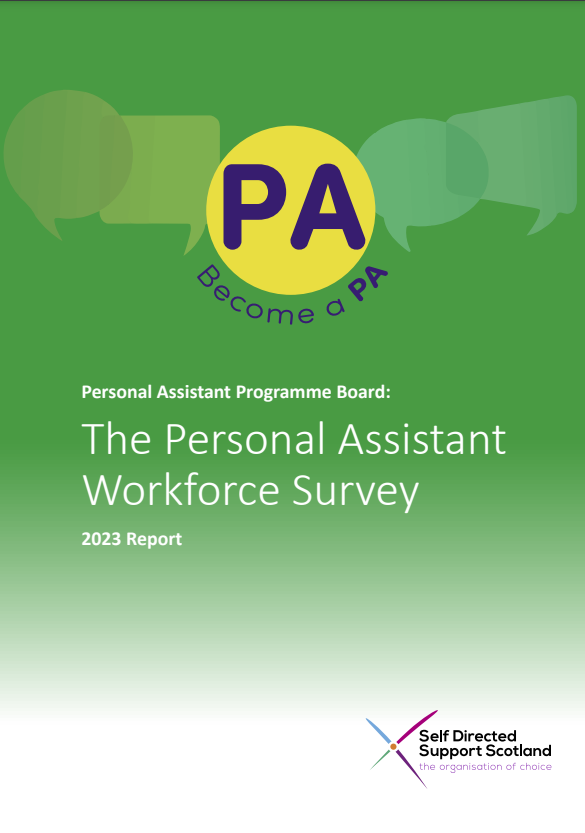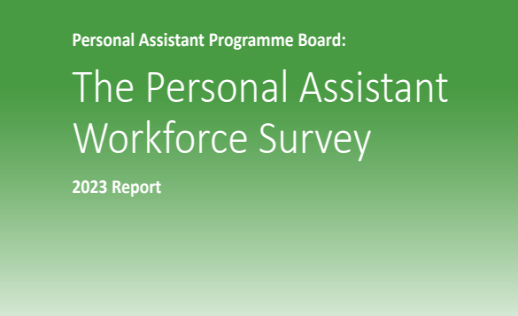Latest Personal Assistant workforce survey findings published
The findings of the second Personal Assistant workforce survey have been published, giving an insight into the PA workforce in Scotland, what motivates and challenges them.
Almost 800 PAs responded to the survey, which was carried out in April 2023 following a first survey conducted in 2022. This second set of results allows, for the first time, comparison from one year to the next. The findings indicate some changes in who makes up the PA workforce in Scotland over the past year.
Among the other key findings are:
- While there were some shifts in the demographics of those who responded to the survey this year, the PA workforce who responded to the survey remains largely white, female and over the age of 45.
- Most PAs would like further support to do their job well.
- Awareness of initiatives to recognise and support the PA workforce in Scotland is low among PAs themselves.
- There was almost a two-fold increase in the number of self-employed PA respondents this year.
- Our respondents this year are working more hours and working for more employers than before.
- Unpaid care to support friends and family in addition to their PA role is a significant component of the lives of over half the PA workforce.
- There is a wide variety of rates of pay for PAs, and low pay has a significant impact on PA wellbeing and feelings toward their role.
- PAs clearly value the rewarding aspects of their role and the relationships they build with employers.
The survey has been undertaken as part of the work of the Personal Assistant Programme Board, which is formed of PAs, employers, Scottish Government, Independent Support Organisations and others across the sector. The Programme Board has been working since 2021 to better understand, support and recognise Personal Assistants working in Scotland.
Writing in their introduction to the survey report, co-chairs of the Programme Board Donald Macleod and Christina McLaren said:
We would like to extend our thanks to the almost 800 people who responded to this second survey. For the first time, we have comparative data to measure progress and further inform how we might improve supports for PAs in Scotland. The findings give us some clear direction for improving the recruitment, retention, and training of PAs. The report also provides wellbeing comparative data for the first time as well as greater insight into potential improvements.
All of this will be hugely useful in informing the improvements in 2024-25 the PA Programme Board undertakes via our workplan, to help us to further raise awareness of the role of PA and the work of the Programme Board. We trust that this data and its analysis will be useful to many of the readers.
You can read the full report here: The Personal Assistant Workforce Survey 2023


